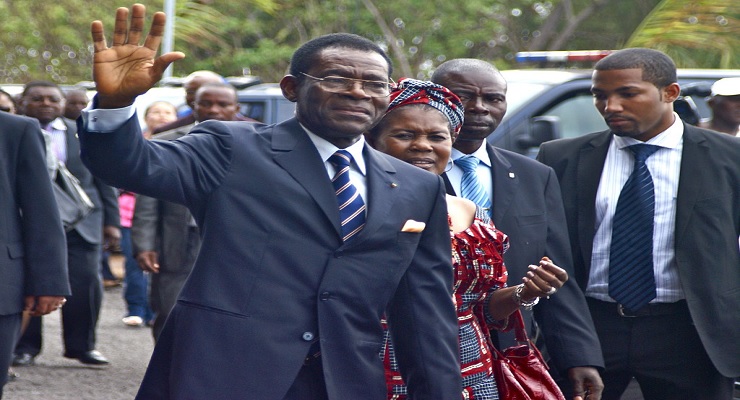
On August 3, 1979, Teodoro Obiang Nguema Mbasogo seized power by means of a coup d’état from Equatorial Guinea’s pioneer President, Francisco Macías Nguema. Macias Nguema, who was Obiang Nguema’s uncle, was arrested, tried, and executed.
The coup plotters accused Macias Nguema of genocide and other crimes. Macias Nguema had become demented to the point of killing members of his own family some of whom were government officials. Obiang Nguema, the coup leader, was Deputy Minister for Defence. Obiang Nguema’s brother was one of Macias Nguema’s victims and had been executed. Retribution, therefore, triggered the coup, since Obiang Nguema had contributed to building the Macias Nguema’s dictatorship.
Following Macias Nguema’s execution on September 29, 1979, Obiang Nguema assumed the presidency of Equatorial Guinea in October 1979 and has been in power in the central African country since then. Staying faithful to the spirit and tradition of dictatorship which he had helped his uncle entrench in Equatorial Guinea, Obiang Nguema has governed Equatorial Guinea uninterrupted since 1979 with his own reign of terror and corruption, and is reportedly preparing his son, who is also accused of corrupt practices, to take over.
On Saturday August 10, 2019, Obiang Nguema is set to “celebrate” 40 years in power, making him Africa’s longest serving ruler. At a time when there is much talk about the urgency to ensure that democracy, meaning frequent alternation in power and equal opportunity in the race for public office, becomes a reality on the African continent, this “celebration” represents a major setback for African democracy as it glorifies one-man rule and State capture. In effect, the vast majority of Equato-Guineans can, in addition to not enjoying basic freedoms, not boast of having access to the country’s wealth.
Equatorial Guinea is a major oil exporter. For several years, the oil wealth in the country was used almost exclusively for the benefit of Obiang Nguema, his family and their inner circles. Only following an attempted coup d’état in 2004 did Obiang Nguema begin to invest some of the country’s wealth in infrastructural development, albeit reportedly on demand of the United States of America that allegedly help foil the coup attempt. However, infrastructural development in Equatorial Guinea has barely translated to better living conditions for all.
While statistics show that Equatorial Guinea has a high income per capita, the vast majority of its citizens live in abject poverty and misery. The country’s wealth is not evenly (re)distributed and most of it remains concentrated in the hands of a few individuals. Unfortunately, there are little prospects for this situation to change. This is because Obiang Nguema, 77, may be succeeded by his son, Teodoro Nguema Obiang Mangue.
Obiang Mangue is known to be a playboy who squanders Equatorial Guinea’s wealth overseas in total impunity. Therefore, the entrenchment of dynastic rule in Equatorial Guinea does not bode well for democracy and economic development in the central African country unless more is done by Equato-Guineans and the African Union (AU) to arrest the unfortunate political and economic trajectory the country has taken over decades.
Equato-Guineans must muster the courage to stand up to dictatorship and the African Union (AU) must equally take a firm position against long-stay in power and dynastic rule on the African continent.
Leave a Reply